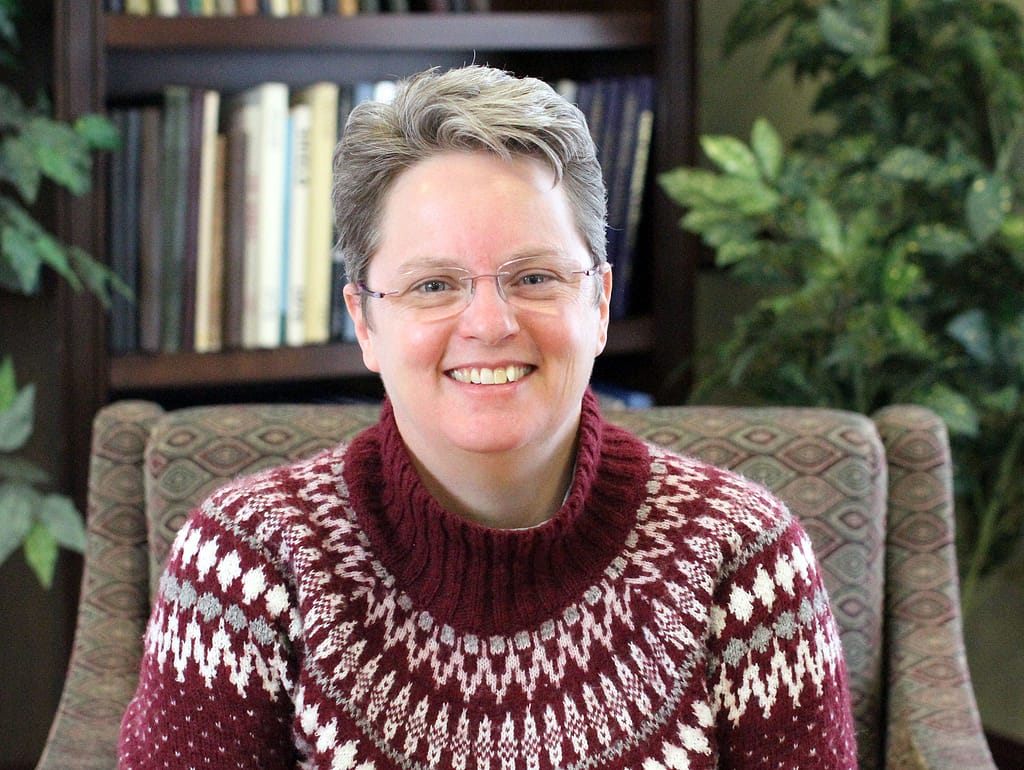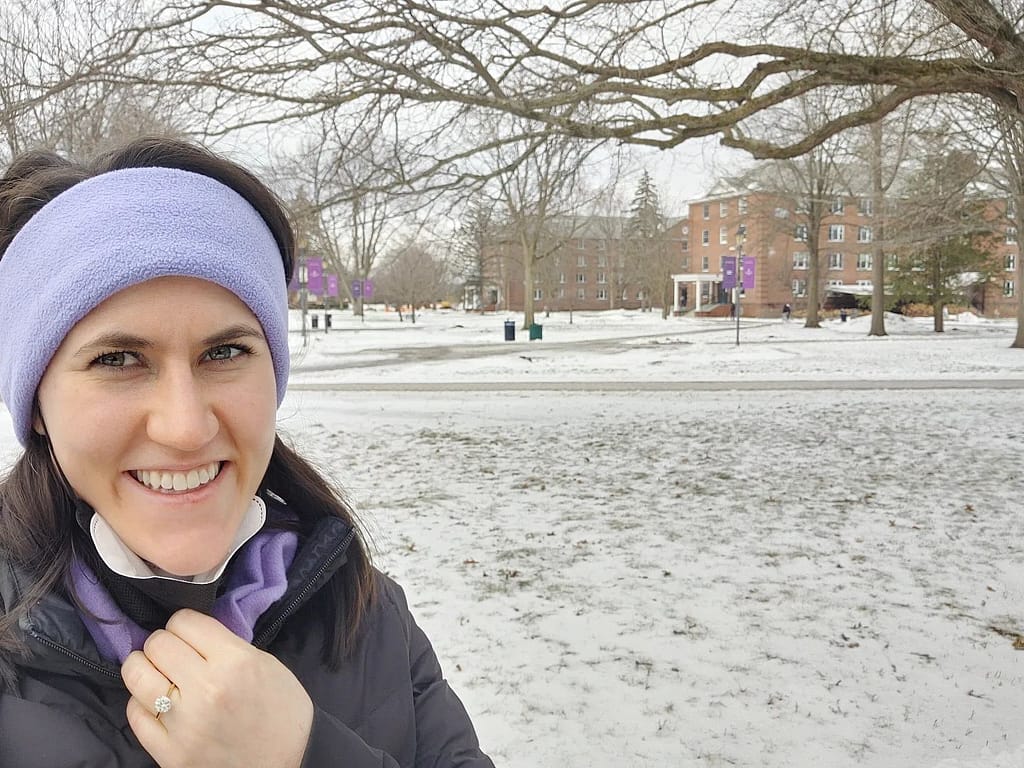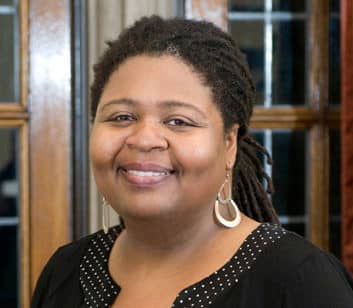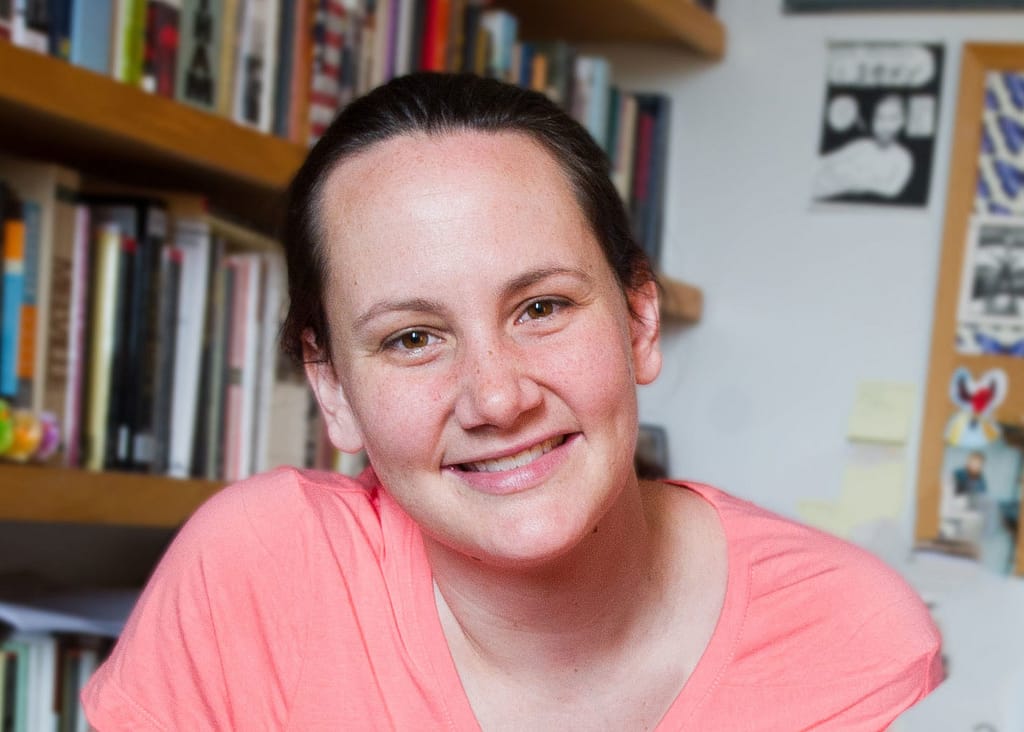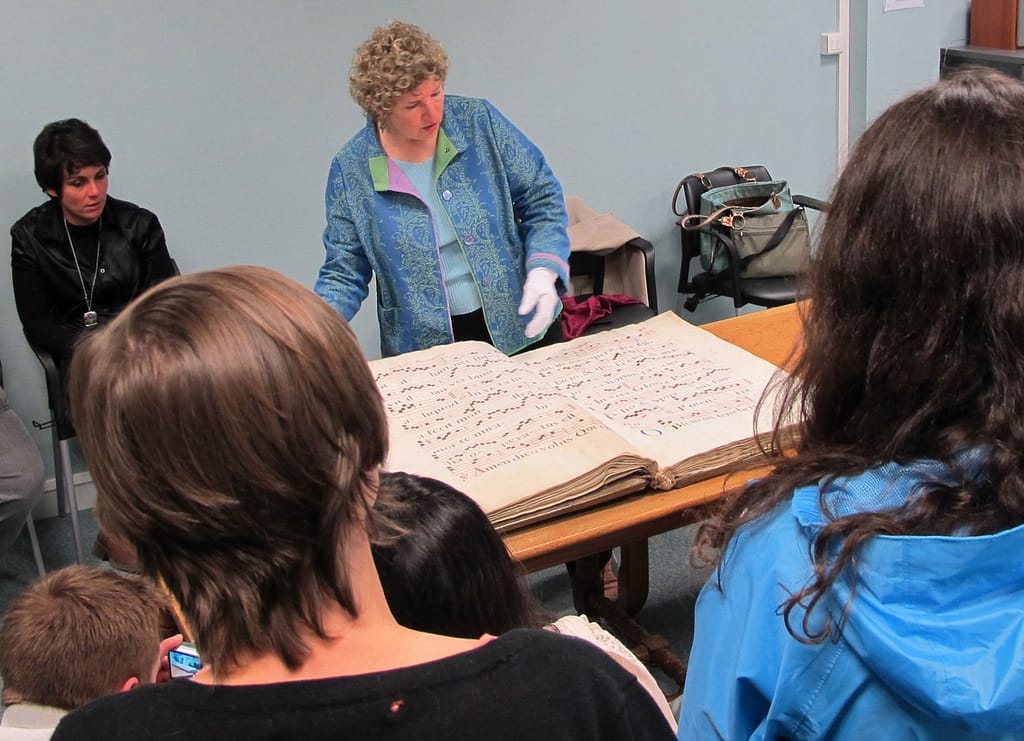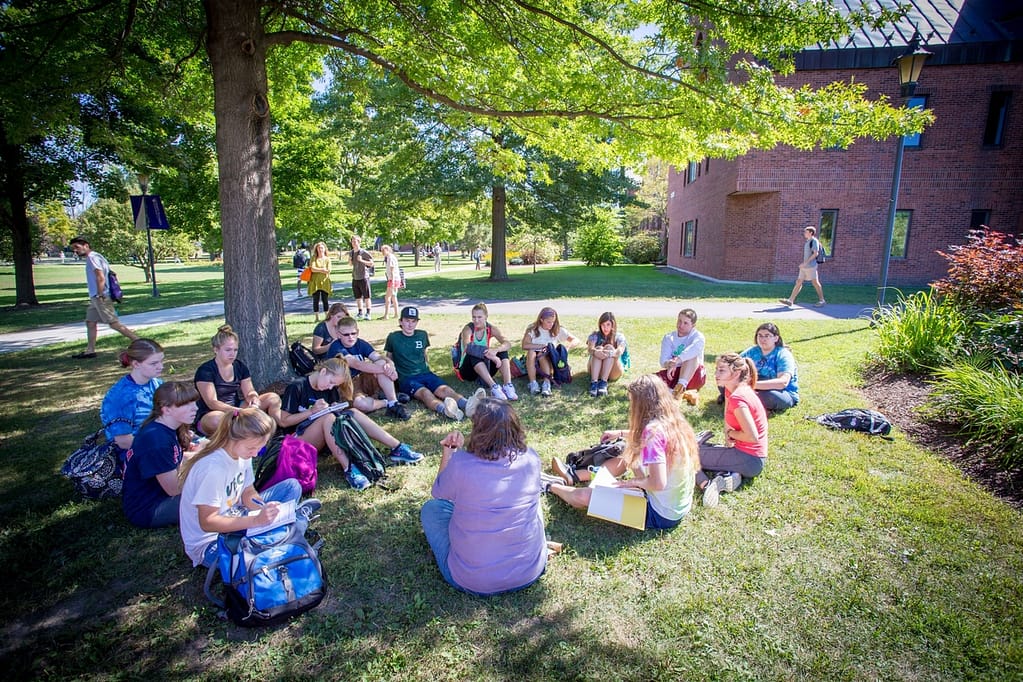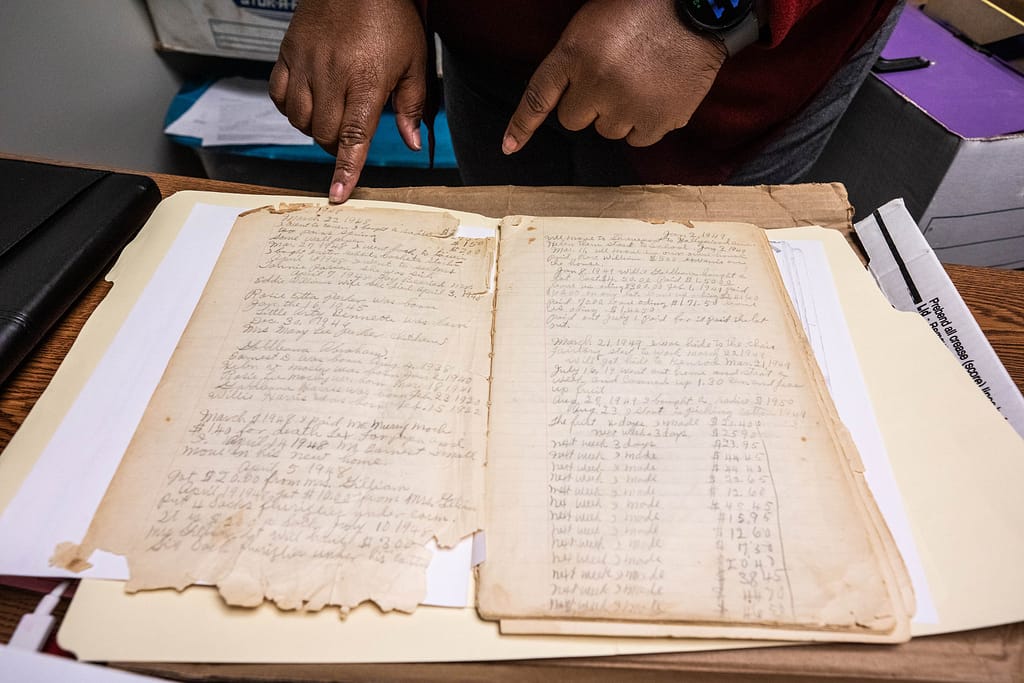About
American Studies engages students in the interdisciplinary study of the cultures and politics of the United States and the Americas, past and present. Through its exploration of American traditions, institutions, geography, arts, and mass culture, the program exposes students to a diversity of American perspectives and identities. Central to our major is an investigation of the intersectionalities of ethnicity, gender, sexuality, class, religion, and citizenship in the examination of American experiences. In response to the discipline’s animating questions “What is ‘America’?” and “What does it mean to be an American?” we analyze the formation of local, indigenous, borderland, and diasporic communities within the context of powerful assertions of national identity.
The American Studies program is also distinct in our commitment to community-based learning and the public humanities, fostering critical analysis by engaging with local community partners in teaching, researching, and promoting active civic participation.
In Depth
The interdisciplinary nature of our program encourages the kind of personal initiative and creative thinking that gives our majors an advantage later in life, and they pursue a rich variety of careers. An American Studies major is particularly appropriate for students planning careers in education, law, communications, government, social work, journalism, museum studies, and information science. Since its inception, American Studies has sought to combine critical thinking with social awareness. Our courses and programming relate theory and practice, research and public policy, and the academy and the community. We foster opportunities for research and advocacy, community and campus engagement, leadership development, service learning and internships.
Each American Studies major selects a concentration and takes 4 courses selected from the list of approved electives for that track. Concentrations include:
Race & Ethnicity Studies
This concentration explores how race and ethnicity matter in our everyday lives and systematically shape our institutions and society. Courses examine topics such as diaspora, migration, sovereignty, mobilization, and the political economies of social inequality and racial formation. They also attend to how these categories intersect and overlap with other forms of difference (such as gender, nation, indigeneity, class, religion, ability, sexuality, etc.)
Childhood Studies
This concentration considers changing conceptions of childhood in American culture as well as the diversity of children’s lived experience. With particular attention to the various ways in which childhood has been aestheticized and politicized, courses examine the figure of the child within the contexts of gender, ethnicity, class, geography, education, material culture, religion, and/or law.
Expressive Cultures
This concentration focuses on creativity and aesthetic expression in everyday life, and on their transformative potential in culture and politics. Through the examination of folklore, music, dance, art, literature, foodways, architecture, and ceremony, students investigate the dynamics and significance of tradition and innovation. Courses explore the paths by which identity finds voice in performances, texts, and artifacts.
Civic Communities
This concentration asks: How do communities and individuals come to define themselves, and how do others define them? Courses may consider how organizations and institutions function socially and culturally, or the roles of social movements, economic structures, politics and government.
The Americas
This geographical concentration encourages students to think about “America” in relation to the many Americas of which our hemisphere is comprised. Some courses allow students to focus on different nations and regions. Others examine the connections between the United States and its neighbors, taking up topics such as border-crossing and transnationalism.
Special Opportunities
You will work closely with an American Studies adviser to develop a program that is both interdisciplinary and that pursues significant themes or questions in depth.
Our program’s interdisciplinary approach is ideal for a future career in middle or high school education. As such, American Studies is an excellent choice of major if you are thinking about also pursuing a complementary degree in Elementary or Secondary Education.
Our study abroad program at Saint Michael’s also allows you to do a semester at another American college or university to explore a special interest in a topic or geographical area.
Careers
Not only will an American Studies major give you an in-depth knowledge of your country and culture, it will provide you with the skills necessary to excel in a variety of professions or to pursue an advanced degree at a graduate institution. Our majors have gone on to varied, successful careers as lawyers, museum directors, sales reps, bankers, EMTs, teachers, librarians, public historians, university administrators, government officials, and more.
In Depth
The interdisciplinary nature of our program encourages the kind of personal initiative and creative thinking that gives our majors an advantage later in life, and they pursue a rich variety of careers. An American Studies major is particularly appropriate for students planning careers in education, law, communications, government, social work, journalism, museum studies, and information science. Since its inception, American Studies has sought to combine critical thinking with social awareness. Our courses and programming relate theory and practice, research and public policy, and the academy and the community. We foster opportunities for research and advocacy, community and campus engagement, leadership development, service learning and internships.
Each American Studies major selects a concentration and takes 4 courses selected from the list of approved electives for that track. Concentrations include:
Race & Ethnicity Studies
This concentration explores how race and ethnicity matter in our everyday lives and systematically shape our institutions and society. Courses examine topics such as diaspora, migration, sovereignty, mobilization, and the political economies of social inequality and racial formation. They also attend to how these categories intersect and overlap with other forms of difference (such as gender, nation, indigeneity, class, religion, ability, sexuality, etc.)
Childhood Studies
This concentration considers changing conceptions of childhood in American culture as well as the diversity of children’s lived experience. With particular attention to the various ways in which childhood has been aestheticized and politicized, courses examine the figure of the child within the contexts of gender, ethnicity, class, geography, education, material culture, religion, and/or law.
Expressive Cultures
This concentration focuses on creativity and aesthetic expression in everyday life, and on their transformative potential in culture and politics. Through the examination of folklore, music, dance, art, literature, foodways, architecture, and ceremony, students investigate the dynamics and significance of tradition and innovation. Courses explore the paths by which identity finds voice in performances, texts, and artifacts.
Civic Communities
This concentration asks: How do communities and individuals come to define themselves, and how do others define them? Courses may consider how organizations and institutions function socially and culturally, or the roles of social movements, economic structures, politics and government.
The Americas
This geographical concentration encourages students to think about “America” in relation to the many Americas of which our hemisphere is comprised. Some courses allow students to focus on different nations and regions. Others examine the connections between the United States and its neighbors, taking up topics such as border-crossing and transnationalism.
Special Opportunities
You will work closely with an American Studies adviser to develop a program that is both interdisciplinary and that pursues significant themes or questions in depth.
Our program’s interdisciplinary approach is ideal for a future career in middle or high school education. As such, American Studies is an excellent choice of major if you are thinking about also pursuing a complementary degree in Elementary or Secondary Education.
Our study abroad program at Saint Michael’s also allows you to do a semester at another American college or university to explore a special interest in a topic or geographical area.
Careers
Not only will an American Studies major give you an in-depth knowledge of your country and culture, it will provide you with the skills necessary to excel in a variety of professions or to pursue an advanced degree at a graduate institution. Our majors have gone on to varied, successful careers as lawyers, museum directors, sales reps, bankers, EMTs, teachers, librarians, public historians, university administrators, government officials, and more.
